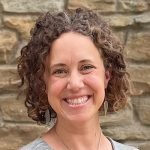Team
 John J. Green
John J. Green
Director, Southern Rural Development Center; Professor, Department of Agricultural Economics, Mississippi State University; Affiliated Faculty, Department of Sociology, Mississippi State University
Dr. John J. Green is Director of the Southern Rural Development Center (SRDC), serving 30 Land Grant Universities across 13 states and 2 territories in efforts to build capacity for improving wellbeing in rural communities. He is also a Professor in the Department of Agricultural Economics at Mississippi State University and Affiliated Faculty with the Department of Sociology. His research background includes population studies, community and regional development, health and health systems, and agrifood systems. Dr. Green’s research is primarily concerned with the intersections between community context, socioeconomic vulnerability, and wellbeing, considering the latter as both driving and resulting from uneven forms and patterns of development. He believes that engaging with community-based organizations, Extension, and residents of rural communities helps to advance knowledge and inform the development of policy and practices around healthy aging.
 Carrie Henning-Smith, PhD, MPH, MSW
Carrie Henning-Smith, PhD, MPH, MSW
PI, INRPHA; Co-Director, University of Minnesota Rural Health Research Center; Associate Professor, Division of Health Policy and Management, University of Minnesota School of Public Health
Dr. Carrie Henning-Smith is Co-Director of the University of Minnesota Rural Health Research Center (RHRC) and an Associate Professor in the Division of Health Policy and Management, University of Minnesota School of Public Health. Dr. Henning-Smith applies her interdisciplinary training in health services research, public health, social work, gerontology, and demography to study policy-relevant issues for rural populations, with a particular focus on social drivers of health, access to and quality of care, and aging and long-term care. She is an associate editor with the Journal of Applied Gerontology and the Journal of Rural Mental Health and is past editorial board chair of the Journal of Rural Health. She has published nearly 100 peer-reviewed manuscripts as well as more than 100 additional commentaries, book chapters, and policy briefs, and her work has been widely cited in federal and state policy documents, as well as in national and international media outlets, including the New York Times, Washington Post, National Public Radio, NBC News, AP, CBS, CNN, ProPublica, and Politico.
 Lori Hunter, PhD, MA
Lori Hunter, PhD, MA
Director, Institute of Behavioral Science; University of Colorado Boulder
Dr. Lori Hunter is the Director of the Institute of Behavioral Science and Professor of Sociology at University of Colorado Boulder. Dr Hunter’s research and teaching focus on links between environmental context and human population dynamics. Specific settings include rural South Africa and Mexico and rural America, where Dr. Hunter links rural livelihoods strategies, including migration, to local shifts in rainfall, temperature and natural resource availability. Dr. Hunter is a member of the National Academies of Science Board on Environmental Change and Society and the NAS Roundtable on Macroeconomics and Climate Risk, newly formed to provide guidance to the White House. She has been an invited speaker of the topic of migration and climate at a variety of settings including the United Nations, National Academies of Science, the Rio+20 Earth Summit, Future Earth, and the French Demographic Research Institute. She was Editor-in-Chief of the journal Population & Environment for 10 years Her research has been funded by the National Institutes of Health, the National Science Foundation and the Rockefeller Brothers Foundation, among other organizations and her collaborative scholarship has appeared in both interdisciplinary and Sociology journals including the Annual Review of Sociology, Global Environmental Change, Population Research and Policy Review, and Society and Natural Resources.
 Leif Jensen, PhD, MS
Leif Jensen, PhD, MS
Distinguished Professor of Department of Rural Sociology and Demography, Pennsylvania State University
Leif Jensen is Distinguished Professor of Rural Sociology and Demography at The Pennsylvania State University, where he has served as Director of the Population Research Institute (2003-2006) and Associate Director of the Social Science Research Institute (2017-2024). He received a B.A. in Sociology from the University of Vermont and an M.S. and Ph.D. in Sociology from the University of Wisconsin-Madison. His areas of specialization include demography, social stratification, and the sociology of international development and economic change. He has published three books and more than 100 journal articles and book chapters on a range of topics including poverty and inequality, underemployment, informal work and household economic strategies, rural health and aging, immigration, and issues in international development. Much of his scholarship focuses on rural people and places and he has served as President of the Rural Sociological Society (2015-2016). He served as founding Principal Investigator for INRPHA from 2019-2024. His research program has been supported by grants from NSF, NIH, USDA, and USAID, as well as the Ford, Spencer, and Russell Sage foundations.
 Shannon Monnat
Shannon Monnat
Professor, Department of Sociology; Director, Center for Policy Research; Lerner Chair in Public Health Promotion and Population Health; Co-Director, Policy, Place, and Population Health Lab; Faculty Affiliate, Aging Studies Institute; Faculty Affiliate, Center for Aging and Policy Studies, Syracuse University
Monnat is a rural demographer and population health scholar whose research examines trends and geographic differences in health and mortality, with a special interest in rural health and health disparities. She is a leading national expert on structural and spatial determinants of drug overdose and other deaths of despair. Her most recent research has focused on geographic differences in COVID-19 experiences and impacts.
She has published over 70 peer-reviewed journal articles and book chapters, and she regularly writes policy briefs for non-academic audiences. Monnat has been the PI or co-investigator on externally funded projects totaling over $16 million, including from the National Institutes of Health, National Institute of Justice, United States Department of Agriculture, Robert Wood Johnson Foundation, and Institute for New Economic Thinking.
She is the PI and Director of the National Wellbeing Survey (NWS).
 Alex Adams, PhD, M.D.
Alex Adams, PhD, M.D.
Dr. Adams is the Director and Principal Investigator of the Center for American Indian and Rural Health Equity (CAIRHE), a position she has held since 2016, and a Professor in the Department of Sociology & Anthropology at Montana State University. She received her PhD. in Nutritional Sciences from the University of Illinois-Urbana in 1993, and her M.D. from the University of Illinois-Urbana in 1994. Previously she was the founding director of the Collaborative Center for Health Equity, an NIH P60 center at the University of Wisconsin (UW) School of Medicine and Public Health. The foundation for all of her leadership and research has been community-based participatory research (CBPR), working in partnership with communities to understand and solve health challenges using both scientific rigor and crucial community knowledge. She has directed multiple clinical trials, including the Healthy Children Strong Families 2 trial in five Native communities nationally, and has more than 60 peer-reviewed publications. She has held K23, U01, R01, P60, and P20 funding from the NIH, as well as more than $10 million in foundation funding. Her mentoring experience includes launching the UW Health Equity Leadership Institute, now in its second decade. This highly successful leadership institute has trained more than 125 under-represented junior faculty and others working in communities in leadership and career advancement, NIH grant writing, CBPR, and health equity research. Many of the HELI scholars are now tenured with independent NIH or other federal funding. She has mentored four T32 postdoctoral scholars and more than 35 undergraduate, MPH, medical, and graduate students. All of her T32 mentees have gone on to faculty positions and are doing community-partnered work. In addition, she has mentored more than 20 UW and MSU junior faculty in CBPR, career advancement, and NIH grant writing. In October 2021, Dr. Adams was elected to membership in the National Academy of Medicine.
 Ty Borders, PhD, MS
Ty Borders, PhD, MS
Professor
Dr. Borders is a Professor in the College of Nursing, Director of the Rural and Underserved Health Research Center, and Acting Director of the Center for Health Services Research at the University of Kentucky. He also serves as Editor of The Journal of Rural Health. He earned a PhD in Hospital and Health Administration, MA in Hospital and Health Administration, and MS in Epidemiology from the University of Iowa and a BA in Psychology from the University of Kansas. He has received funding from the NCI, NIAAA, NIDA, RWJF, AHRQ, and HRSA to investigate rural health and health services. Dr. Borders is a Fellow of the American College of Epidemiology, Honorary Kentucky Colonel, and recipient of the Outstanding Alumni Award for Career Achievement from the University of Iowa College of Public Health.
 William Copeland, PhD
William Copeland, PhD
Dr. Copeland is a Professor of Psychiatry at the University of Vermont and the Thomas M Achenbach chair in Developmental Psychopathology. He was trained as a clinical psychologist at the University of Vermont and then completed a postdoctoral fellowship in psychiatric epidemiology at Duke University Medical Center. He is the principal investigator of the prospective, longitudinal Great Smoky Mountains Study that has been following 1420 participants in rural Appalachia for over 30 years. His research program has focused on understanding the developmental epidemiology of emotional and behavioral health across the lifespan. This work includes understanding the interplay between early adverse experiences and genetic vulnerability with other individual, family, and contextual characteristics. He is also an investigator on the Duke Preschool Anxiety Study, the University of Vermont Wellness Study, and Project RAISE. His research has been supported by NIMH, NIDA, NICHD, NIA, and the Brain & Behavior Research Foundation. This program of research has led to over 150 peer-reviewed manuscripts including publications in JAMA, JAMA: Psychiatry, the American Journal of Psychiatry, American Journal of Public Health, Molecular Psychiatry, and the Proceedings of the National Academy of Sciences. His work has been covered in such national news outlets as Slate, the New York Times, TIME magazine and CNN.
 Irma Elo, PhD
Irma Elo, PhD
Tamsen and Michael Brown Presidential Professor
Dr. Irma Elo has a PhD in Demography and Public Affairs from Princeton University. She is Professor of Sociology and a Research Associate at the Population Studies Center and the Population Aging Research Center at the University of Pennsylvania where she has also served as the Chair of Sociology and Director of the Population Studies Center and the Population Aging Research Center. She is or has been a member and/or a chair of several national and international committees, including chair of the Board of Scientific Counselors of the National Center for Health Statistics (NCHS), member of the Census Bureau’s Scientific Advisory Committee (CSAC), member and chair of the section on the sociology of population of the American Sociological Association, member of board of directors of the Population Association of America (PAA), chair of the PAA’s Committee on Population Statistics, a member of an International Advisory Board of the Swedish Initiative for Research on Microdata in the Social and Medical Sciences, and a member of the Advisory Board of for the Max Planck – University of Helsinki Center for Social Inequalities in Population Health, and Duke University’s Center for Population Health and Aging. She was elected as the President-elect of the PAA in 2023. Her main research interests center on geographic inequalities in US mortality, socioeconomic and racial/ethnic disparities in cognition, health, and mortality across the life course and immigrant health and mortality. Her research is and has been funded by grants from the National Institutes of Health and the Robert Wood Johnson Foundation.
 Pamela Herd, PhD
Pamela Herd, PhD
Carol Kakalec Kohn Professor of Social Policy at the University of Michigan, Ford School of Public Policy
Pamela Herd is the Carol Kakalec Kohn Professor of Social Policy and faculty associate at the Institute for Social Research Population Studies Center. Her research focuses on inequality and how it intersects with health, aging, and policy. She is also an expert in survey research and biodemographic methods. She is currently one of the Co-Principal Investigators for General Social Survey, an Investigator with the Wisconsin Longitudinal Survey, and Chair of the NIH Data Advisory Board for the National Study of Adolescent Health.
Her research and data collection interests especially focus on relationships between social conditions and health, with particular interests in the relationships between social environments and health and cognitive outcomes among older adults, with attention to the biological mechanisms that mediate these relationships. Her current work is centered on the social determinants of cognitive health in later life and the implications for inequality. She is a MPI (with Sanjay Asthana and Michal Engelman) on a project tracking dementia in the Wisconsin Longitudinal Study (2R01AG060737). As part of this project, we have been examining relationships between early life conditions and cognitive health in later life in the WLS. She is also a MPI with Sanjay Asthana and Katrina Walsemann for Network on Education, Biosocial Pathways, and Dementia across Diverse Populations (R24AG077433) that aims to establish a network of researchers focused on the relationship between education, biosocial pathways, and dementia across diverse populations, as well as to broaden the field of researchers by supporting disparities researchers new to studying dementia and dementia researchers new to a focus on disparities. Professor Herd’s policy research focuses, in large part, on the difficulties people encounter accessing health promoting social welfare benefits. Her book Administrative Burden. Policymaking by Other Means has received numerous awards, was reviewed in the New York Review of Books, and has helped influence state and federal policy reforms, including recent executive orders by the Biden Administration. She frequently writes and speaks on these topics to media outlets such as the New York Times, Washington Post, Slate, NPR, and the PBS NewsHour.
 Arie Kapteyn, PhD
Arie Kapteyn, PhD
Arie Kapteyn, Ph.D., is a Professor of Economics and the Executive Director of the Dornsife College of Letters Arts and Sciences Center for Economic and Social Research (CESR) at the University of Southern California. Before founding CESR at USC in 2013, Prof. Kapteyn was a Senior Economist and Director of the Labor & Population division of the RAND Corporation. He came to RAND after an almost twenty years stint at Tilburg University in the Netherlands, where he was professor of economics, dean, and founding director of several institutes. Much of Dr. Kapteyn’s recent applied work is in the field of aging and economic decision making, with papers on topics related to retirement, consumption and savings, pensions and Social Security, disability, economic well-being of the elderly, and portfolio choice. He is a pioneer in the development of new methods of data collection, using the Internet and mobile devices. He has about 20 years of experience in recruiting and running population representative Internet panels, including the CentERpanel (2000 respondents; the first probability Internet panel in the world) in the Netherlands, as well as the American Life Panel (6000 respondents) and the Understanding America Study (8500 respondents) in the US. He has conducted numerous experiments with the panels, concerning methods (e.g. optimal recruiting and survey design), substantive studies (including health and decision making), and measurement (self-administered biomarkers, physical activity, time use, weight and impedance measurement using advanced bathroom scales). Furthermore, he has been involved in telephone and in-person surveys on various continents. Dr. Kapteyn received an M.A. in econometrics from Erasmus University Rotterdam, an MA in agricultural economics from Wageningen University, and a Ph.D. from Leiden University, all in the Netherlands. He is a fellow of the Econometric Society and holds a knighthood in the order of the Netherlands Lion.

Amy Pienta, PhD
Amy Pienta is Associate Director of Faculty and a Research Professor of ICPSER at the University of Michigan. As a demographer who works on social determinants of health, she has directed several large health data infrastructure projects advancing open science goals (National Addiction and Data Archive Program, Health and Medical Care Archive, Patient-Centered Outcomes Data Repository, and others). Her work is supported by the National Institute on Drug Abuse, the Robert Wood Johnson Foundation, PCORI, and Millennium Challenge Corporation.
 Jennifer Schrack, PhD, MS
Jennifer Schrack, PhD, MS
Professor of Epidemiology & Medicine
Dr. Schrack is a Professor of Epidemiology and Medicine, and the Director of the Center on Aging and Health at Johns Hopkins University. She holds an MS in Kinesiology from the University of Michigan and a PhD in Epidemiology from the Johns Hopkins Bloomberg School of Public Health. Her primary area of research focuses on the intersection between movement and health, with the goal of maintaining mobility and functional independence with aging. She is the MPI of the National Health and Aging Trends Study (NHATS), a study designed to provide a platform for studying late-life trends in physical, cognitive, and sensory disability. She is also the PI or MPI of two NIA funded grants focused on the association between movement and brain health in late life.
To request to join INRPHA, please email inrpha@umn.edu.
